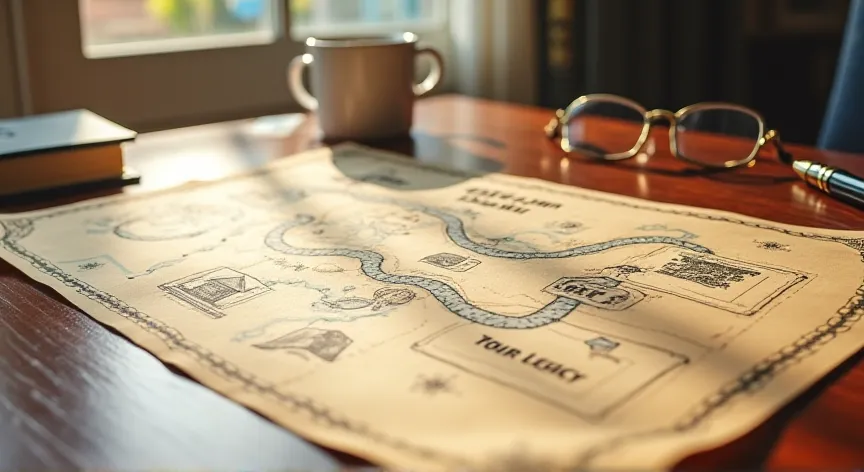|
Legal & Tax Disclosure
ATTORNEY ADVERTISING.
This article is provided for general informational purposes only and does not constitute legal, financial, or tax advice.
Reading this content does not create an attorney-client or professional advisory relationship.
Laws vary by jurisdiction and are subject to change. You should consult a qualified professional regarding your specific circumstances.
|
5 Will Questions Answered: Last Will & Testement
Stop worrying about intestacy. Get fast, clear answers to your top 5 questions about Wills, Living Trusts, probate, and how to legally secure your children’s guardianship. Start planning today.
5 Will Questions Answered: Avoid Probate & Protect Your Family
Frequently Asked Questions About Last Wills and Testaments
What happens if a person dies without a Will?
If someone dies without a valid Will, they are considered to have died intestate. This means their assets will be distributed according to the intestacy laws of their state, not according to their personal wishes.
The state’s pre-determined formula typically distributes assets to the surviving spouse and closest blood relatives, which often leaves out friends, partners, or favored charities. The court also appoints an administrator and guardian for minor children.
What is the difference between a Will and a Living Trust?
A Will is a legal document that dictates what happens to your assets after you die. It only becomes legally enforceable after your death through the court process called probate.
A Living Trust, by contrast, is a legal entity that holds your assets while you are alive and allows them to be distributed privately and immediately upon death, thereby avoiding the time and expense of the probate court process. You generally still need a **Pour-Over Will** even with a Living Trust.
What are the absolute minimum requirements for a Will to be valid?
While requirements vary by state, a Will generally must meet four core criteria to be considered legally valid:
- The Testator (person making the Will) must be of sound mind and legal age (usually 18).
- It must be a written document (typing is standard; handwritten or holographic Wills are sometimes accepted).
- It must be signed by the Testator.
- It must be properly witnessed by a required number of eligible adults (typically two) who sign it in your presence. Some states also require notarization.
Does my Will cover all of my property and assets?
No. This is one of the biggest misconceptions in estate planning. Your Will only controls assets that are titled solely in your name and do not have a beneficiary designation.
Assets that pass outside of your Will include: life insurance payouts, retirement accounts (401k, IRA), property held in joint tenancy, assets held in a Living Trust, and accounts with Payable-on-Death (P.O.D.) or Transfer-on-Death (T.O.D.) designations.
Can I use my Will to appoint a Guardian for my minor children?
Yes, absolutely. This is one of the most critical reasons young parents need a Will. The Will is the only place you can legally nominate a Guardian to take physical care of your minor children if both parents pass away.
The Will can also name a Property Guardian (or Trustee) to manage the assets you leave for your children until they reach a designated age, often older than 18 (such as 21 or 25).

Free Initial Consultation with
Steven F. Bliss Esq.

★ ★ ★ ★ ★

Did you find this article helpful? Show your support by giving us a 5-star rating—it only takes a second and helps others find the information they need.
|
Attorney Advertising, Legal Disclosure & Authorship
ATTORNEY ADVERTISING.
This content is provided for general informational and educational purposes only and does not constitute legal, financial, or tax advice.
Under the California Rules of Professional Conduct and State Bar advertising regulations, this material may be considered attorney advertising.
Reading this content does not create an attorney-client relationship or any professional advisory relationship.
Laws vary by jurisdiction and are subject to change, including recent 2026 developments under California’s AB 2016 and evolving federal estate and reporting requirements.
You should consult a qualified attorney or advisor regarding your specific circumstances before taking action.
Responsible Attorney:
Steven F. Bliss, California Attorney (Bar No. 147856).
Local Office:
The Law Firm of Steven F. Bliss Esq.43920 Margarita Rd Ste F Temecula, CA 92592 (951) 223-7000
The Law Firm of Steven F. Bliss Esq. is a practice location and trade name used by Steven F. Bliss, Esq., a California-licensed attorney.
About the Author & Legal Review Process
This article was researched and drafted by the Legal Editorial Team of the Law Firm of Steven F. Bliss, Esq.,
a collective of attorneys, legal writers, and paralegals dedicated to translating complex legal concepts into clear, accurate guidance.
Legal Review:
This content was reviewed and approved by Steven F. Bliss, a California-licensed attorney (Bar No. 147856).
Mr. Bliss concentrates his practice in estate planning and estate administration, advising clients on proactive planning strategies and representing fiduciaries in probate and trust administration proceedings when formal court involvement becomes necessary.
With more than 35 years of experience in California estate planning and estate administration,
Mr. Bliss focuses on structuring enforceable estate plans, guiding fiduciaries through court-supervised proceedings,
resolving creditor and notice issues, and coordinating asset management to support compliant, timely distributions and reduce fiduciary risk.
|
